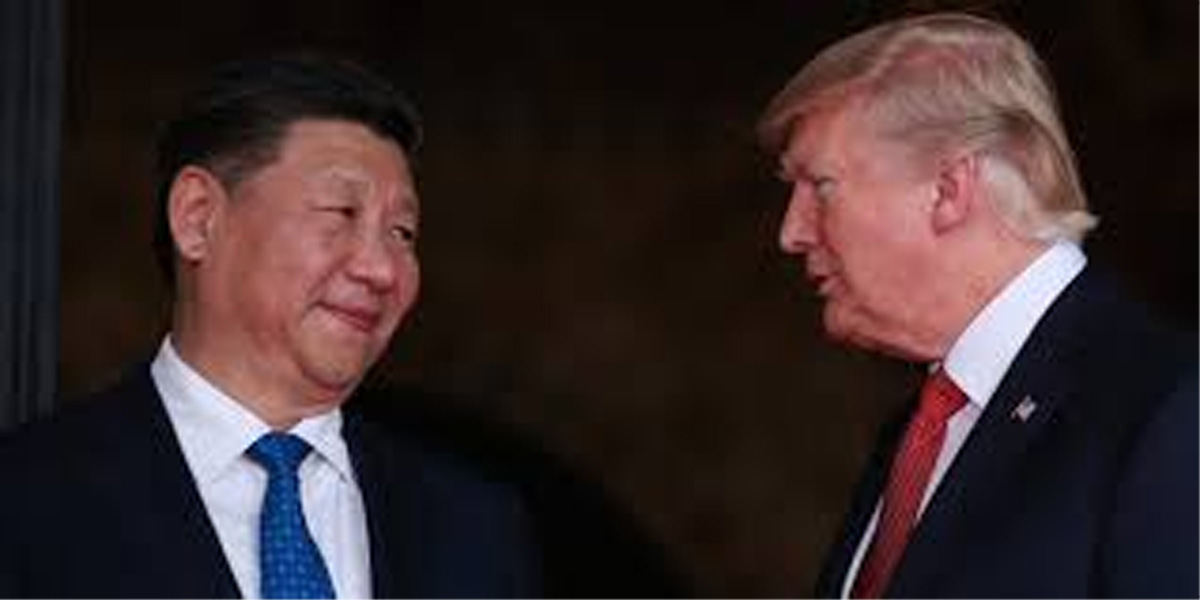BEIJING, Apr 5: Chinese President Xi Jinping on Friday said that “new substantial progress” has been made on the China-US economic agreement, generating optimism for an end to the trade war between the world’s two largest economies.
Xi’s remarks were part of a message conveyed to US President Donald Trump at the White House by Chinese Vice Premier Liu He, Beijing’s lead negotiator to resolve the nine month-long trade war.
The US and China are locked in a trade war since Trump imposed heavy tariffs on imported steel and aluminium items from China in March last year, a move that sparked fears of a global trade war. In response, China imposed tit-for-tat tariffs on billions of dollars worth of American imports.
China is the world’s second largest economy after the US.
Liu, who is in Washington to continue the trade negotiations, met President Trump on Thursday and conveyed Xi’s message.
The Chinese President said that new substantial progress has been made on the text of the China-US economic and trade agreement in the past more than one month.
Xi encouraged the two sides to keep up with the spirit of mutual respect, equality and mutual benefit, and resolve issues of mutual concern so as to conclude the negotiations on the agreement text as soon as possible.
Under the current situation, a healthy and stable development of China-US relations concerns the interests of both Chinese and American people, as well as the interests of people of other countries around the world, and it needs, in particular, their strategic leadership, Xi told Trump, state-run Xinhua news agency reported.
Xi also said that he is ready to keep close contact with Trump through various means, and believes that the China-US relations will make new and greater progress under their joint guidance.
Top trade officials of the US and China have been holding a series of talks to end the trade war.
Trump is demanding China to reduce the USD 375 billion trade deficit and protection of Intellectual Property Rights (IPR), technology transfer and more access to American goods to Chinese markets.
The US increased tariffs on over USD 250 billion worth of Chinese imports and threatened to extend 25 per cent tariffs on USD 200 billion Chinese imports. China too slapped reciprocal tariffs on some US products.
Trump held back his threat to impose additional tariffs on the rest of Chinese imports as both sides stepped up talks to finalise the text of the deal.
Liu, after meeting Trump, said the Chinese and US negotiation teams have over the past two days conducted fruitful consultations and reached new consensus on important issues such as the text of the economic and trade agreement.
During the meeting, Liu said that the two sides, guided by the consensus reached by the two heads of state, will continue with the consultations to achieve more progress on issues of mutual concern so as to conclude the negotiations as soon as possible, Xinhua reported.
Separately, Chinese commerce ministry spokesperson Gao Feng announced reciprocal suspension of additional tariffs slapped by both the countries on each other’s goods since last year, saying the move would “undoubtedly” create a conducive atmosphere for the China-US economic and trade negotiations.
China’s State Council or central cabinet said last Sunday that China would continue to suspend additional tariffs on US vehicles and auto parts after March 31, in a goodwill gesture following a US decision to delay tariff hikes on Chinese imports.
China said in December it would suspend additional 25 per cent tariffs on US made vehicles and auto parts for three months, following a truce in the trade dispute between the world’s two largest economies. (PTI)
&&&


